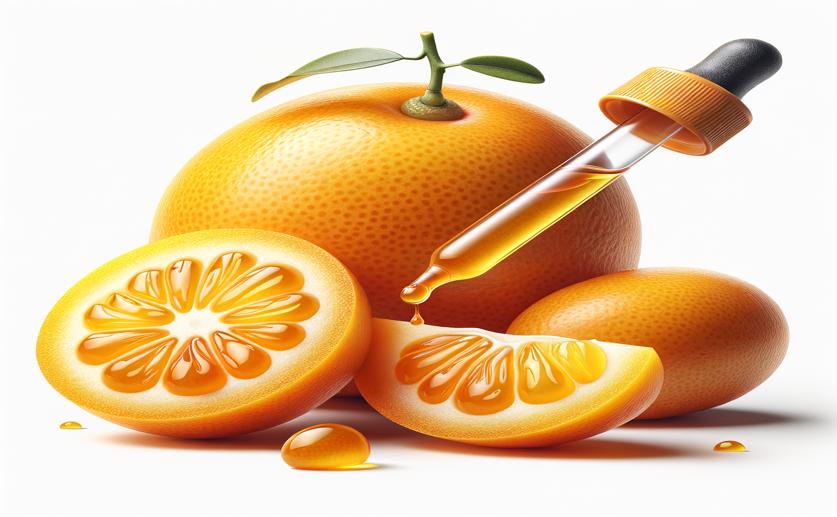
Reducing Salmonella Infections with Kumquat Fruit Extract
Jenn Hoskins
12th July, 2024

Image Source: Natural Science News, 2024
Key Findings
- Researchers at Princess Nourah Bint Abdulrahman University found that Kumquat methanol extract (FJME) can effectively inhibit the growth of Salmonella typhimurium
- The study identified 39 compounds in FJME, with palmitic acid and cis-vaccenic acid being the major active constituents showing significant antibacterial properties
- FJME not only fights bacterial infection but also reduces oxidative stress and inflammation, improving liver and spleen health in infected models
References
Main Study
1) In Vivo and in Vitro Mitigation of Salmonella Typhimurium Isolates by Fortunella Japonica Fruit Extract.
Published 9th July, 2024
https://doi.org/10.1007/s00284-024-03770-1
Related Studies
2) Antibiotic Use in Agriculture and Its Consequential Resistance in Environmental Sources: Potential Public Health Implications.
3) Salmonella, Food Safety and Food Handling Practices.
4) Human Salmonellosis: A Continuous Global Threat in the Farm-to-Fork Food Safety Continuum.
5) Bacterial Pathogens in the Food Industry: Antibiotic Resistance and Virulence Factors of Salmonella enterica Strains Isolated from Food Chain Links.



 22nd May, 2024 | Jenn Hoskins
22nd May, 2024 | Jenn Hoskins